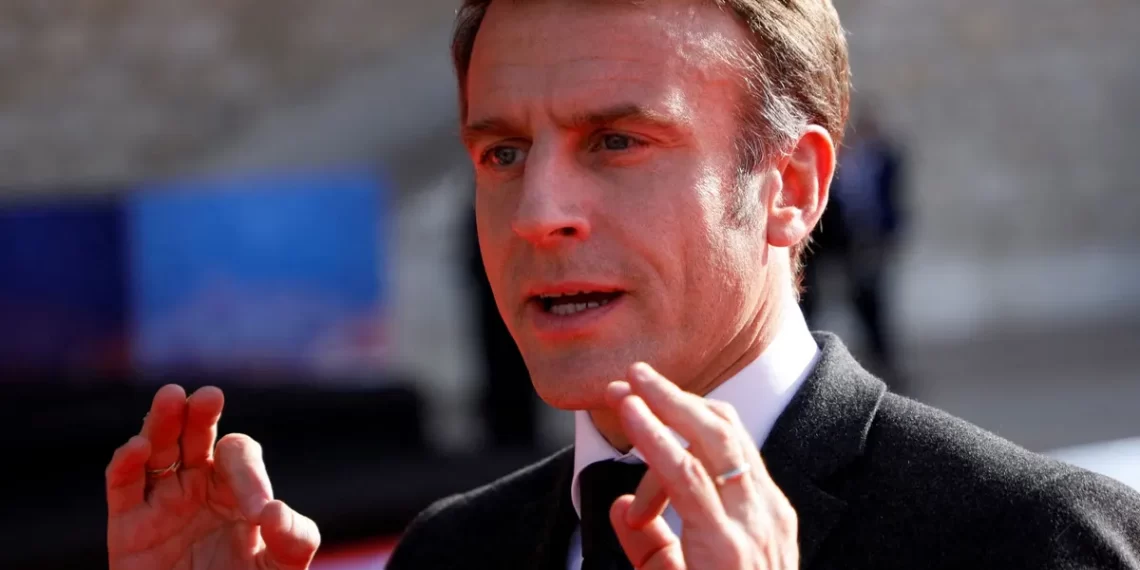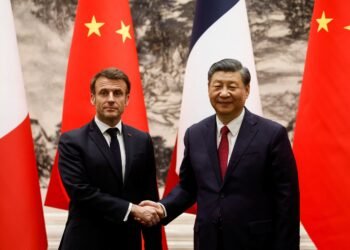President Emmanuel Macron has praised Australia’s decision to recognise a Palestinian state.
In a post on X, the French President welcomed the fact that Australian Prime Minister, Anthony Albanese is “joining the momentum we created in New York, which has already been supported by the United Kingdom, Canada, Portugal, and others.”
“This reflects our commitment to the two-State solution and to the need to collectively rebuild a political pathway, without which there can be no peace and security for all.”
Emmanuel Macron
More than 140 countries already recognise a Palestinian state, but France was the first permanent member of the UN Security Council to announce plans to do so. Canada, the UK and Australia have since followed Macron’s lead.
In his speech announcing his decision on Monday, August 11, 2025, Albanese also mentioned that he had spoken about his plan with Minister Christopher Luxon and Shigeru Ishiba, the respective Prime Ministers of New Zealand and Japan, two other countries that are yet to formally recognise a Palestinian state.

Meanwhile, New Zealand’s Foreign Minister, Winston Peters said in a statement on Monday that his country’s cabinet will make a formal decision on Palestinian statehood in September.
“Some of New Zealand’s close partners have opted to recognise a Palestinian state, and some have not.
“Ultimately, New Zealand has an independent foreign policy, and on this issue, we intend to weigh up the issue carefully and then act according to New Zealand’s principles, values and national interest.”
Winston Peters
Peters said that while New Zealand has for some time considered the recognition of a Palestinian state a “matter of when, not if,” the issue is not “straightforward” or “clear-cut,” adding that there are a broad range of strongly held views within the government, Parliament and the New Zealand society over the question of recognition of a Palestinian state.
“It is only right that this complicated issue be approached calmly, cautiously and judiciously. Over the next month, we look forward to canvassing this broad range of views before taking a proposal to Cabinet.”
Winston Peters
Also, the Foreign Ministries of Qatar and Saudi Arabia welcomed the Australian move as well as the announcement by New Zealand that it was considering taking a similar step.
In a statement, Qatar’s Ministry of Foreign Affairs stressed that the announcements were a “positive step” and align with significant support for the rights of the Palestinian people, “enabling them to exercise their right to self-determination and establish their independent state along the 1967 borders, with East Jerusalem as its capital.”
Saudi Arabia, on its part, noted that the “current stage requires peace-loving countries to recognise the State of Palestine and support efforts to end the protracted war, particularly in light of the ongoing Israeli violations of international law.”
Australia’s Move To Recognise Palestinian Statehood Driven By Popular Sentiment
According to Jessica Genauer, a Senior Lecturer in international relations at Flinders University, the decision is driven by popular sentiment in Australia, “which has shifted in recent months, with a majority of Australians wanting to see an imminent end to the humanitarian crisis in Gaza.”
Albanese had said just last month that he would not be drawn on a timeline for recognition of a Palestinian state, and has previously been wary of a public opinion backlash in Australia, which has significant Jewish and Muslim minorities.
However, the public mood has shifted sharply in Australia against Israel’s war on Gaza. Tens of thousands of demonstrators marched across Sydney’s Harbour Bridge this month, calling for aid deliveries to be allowed to enter Gaza as the humanitarian crisis worsens and Israel’s military continues to block relief efforts.
READ ALSO: Cedi Gains Muscle as BoG’s Gold Holdings Climb Past 34 Tonnes























